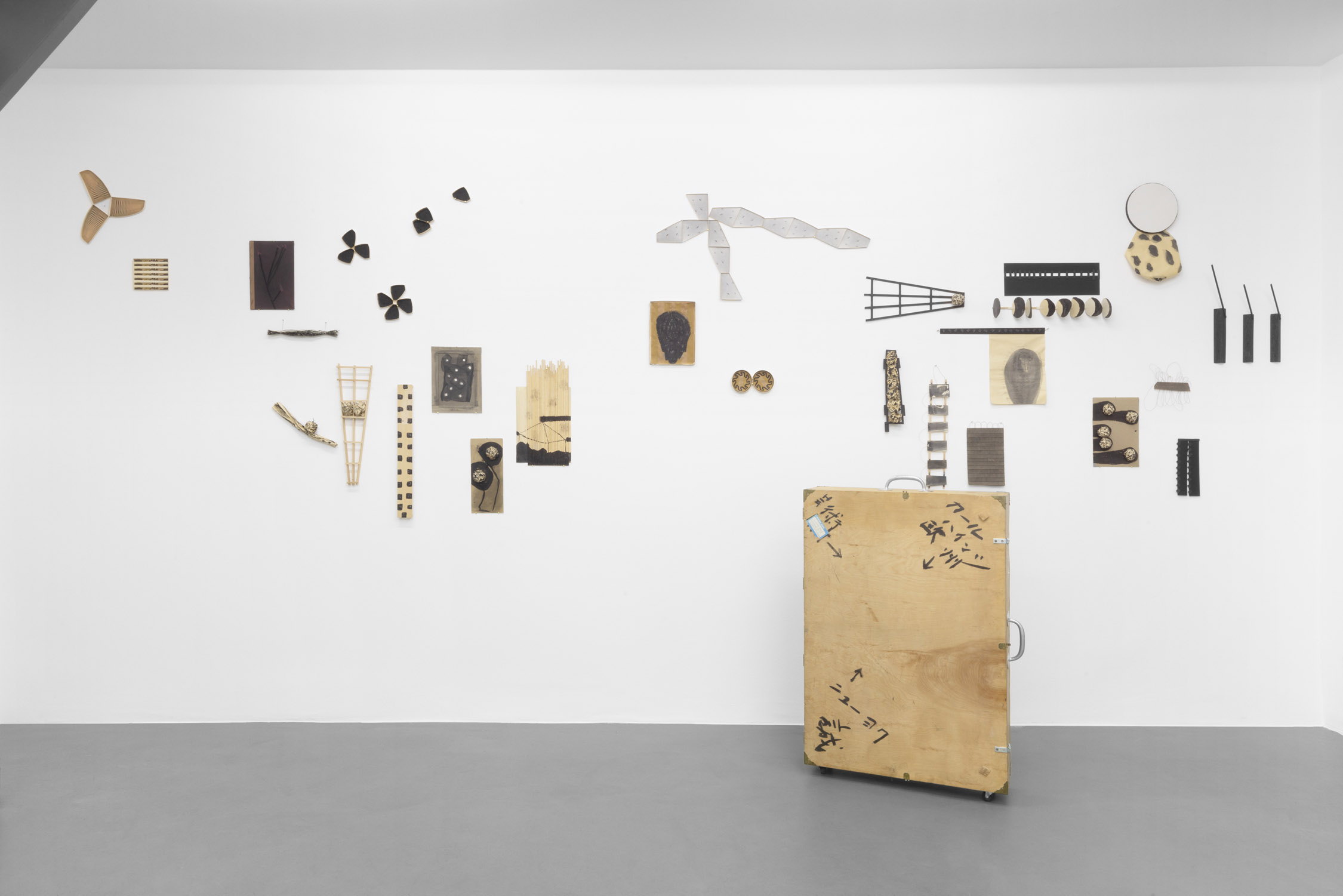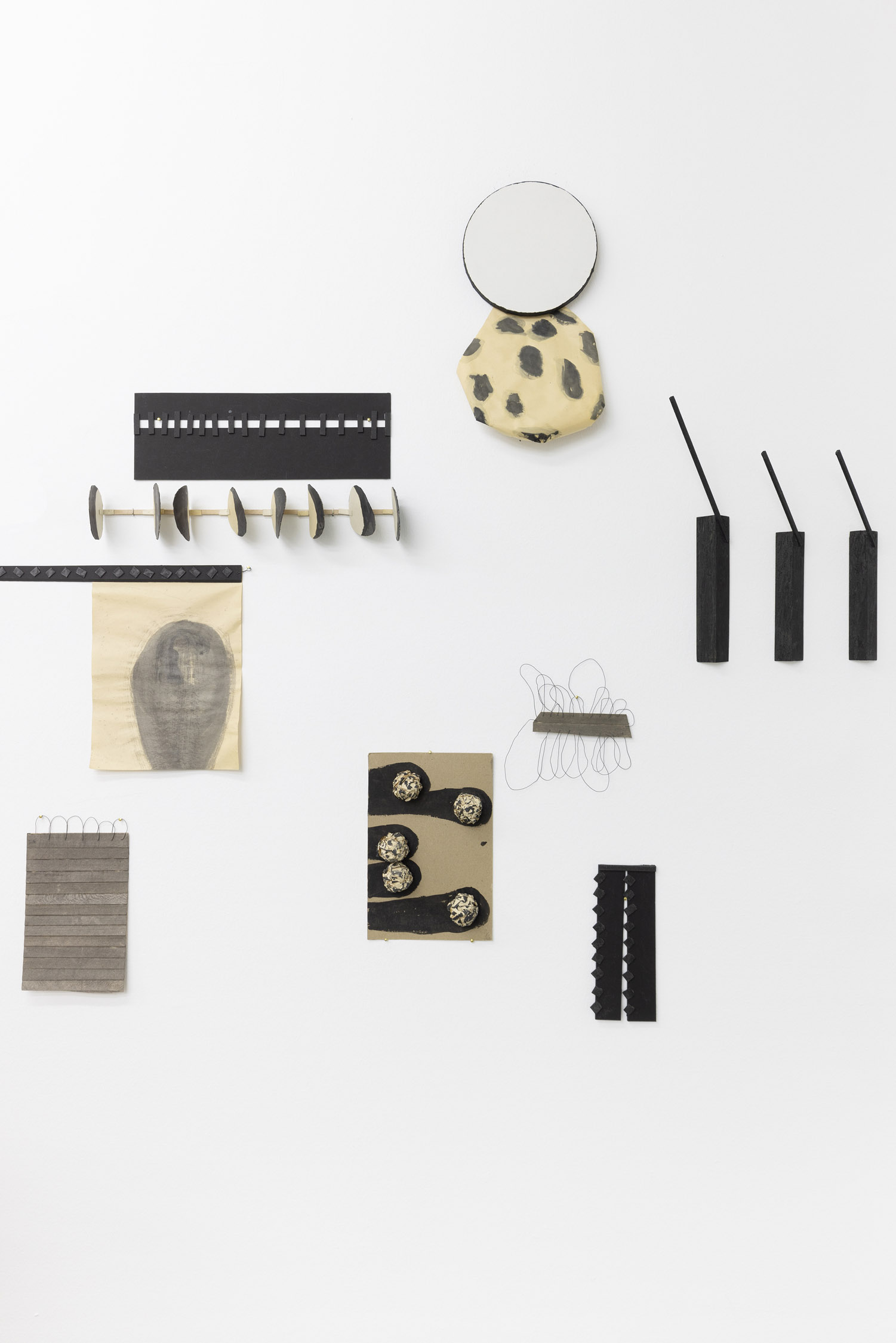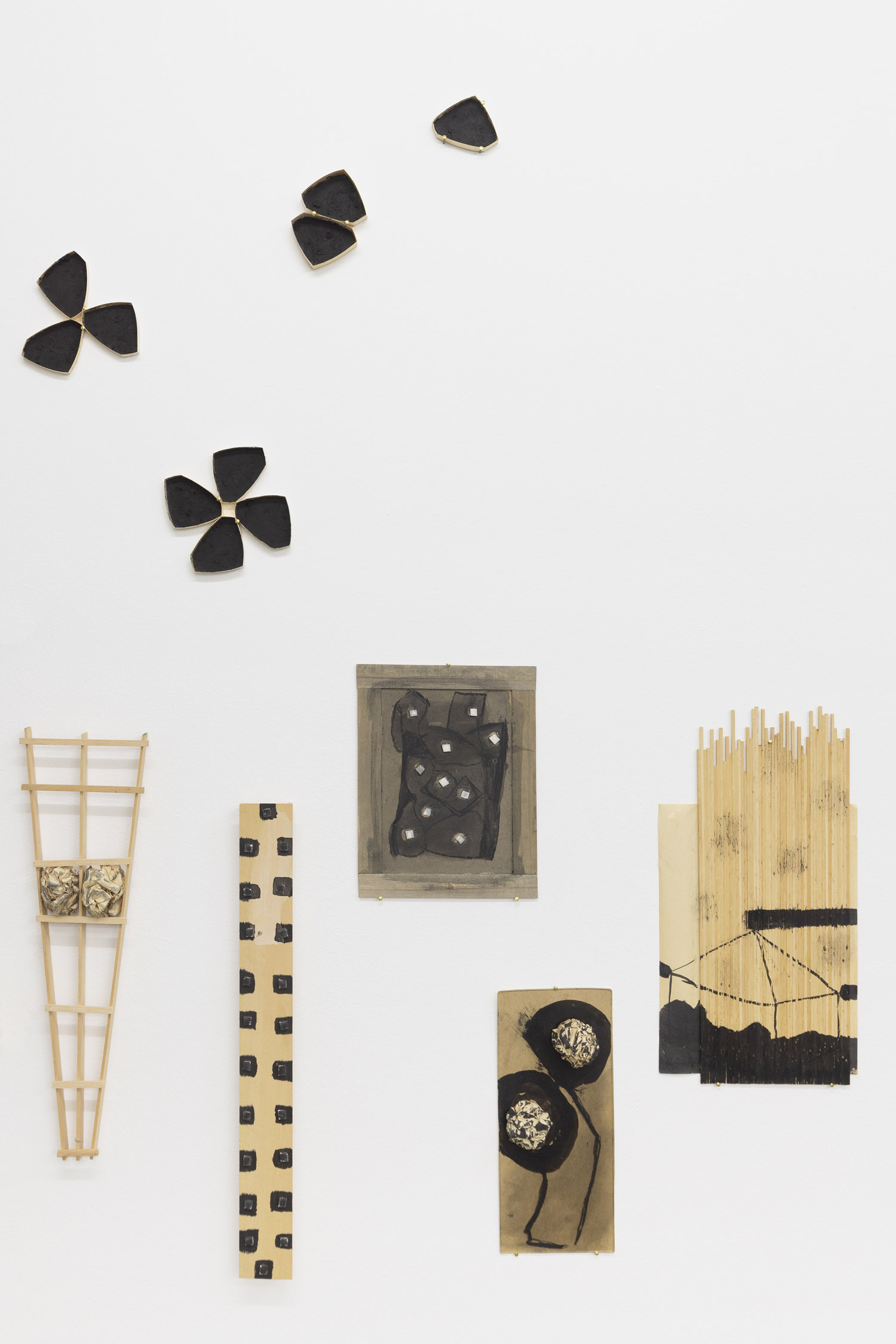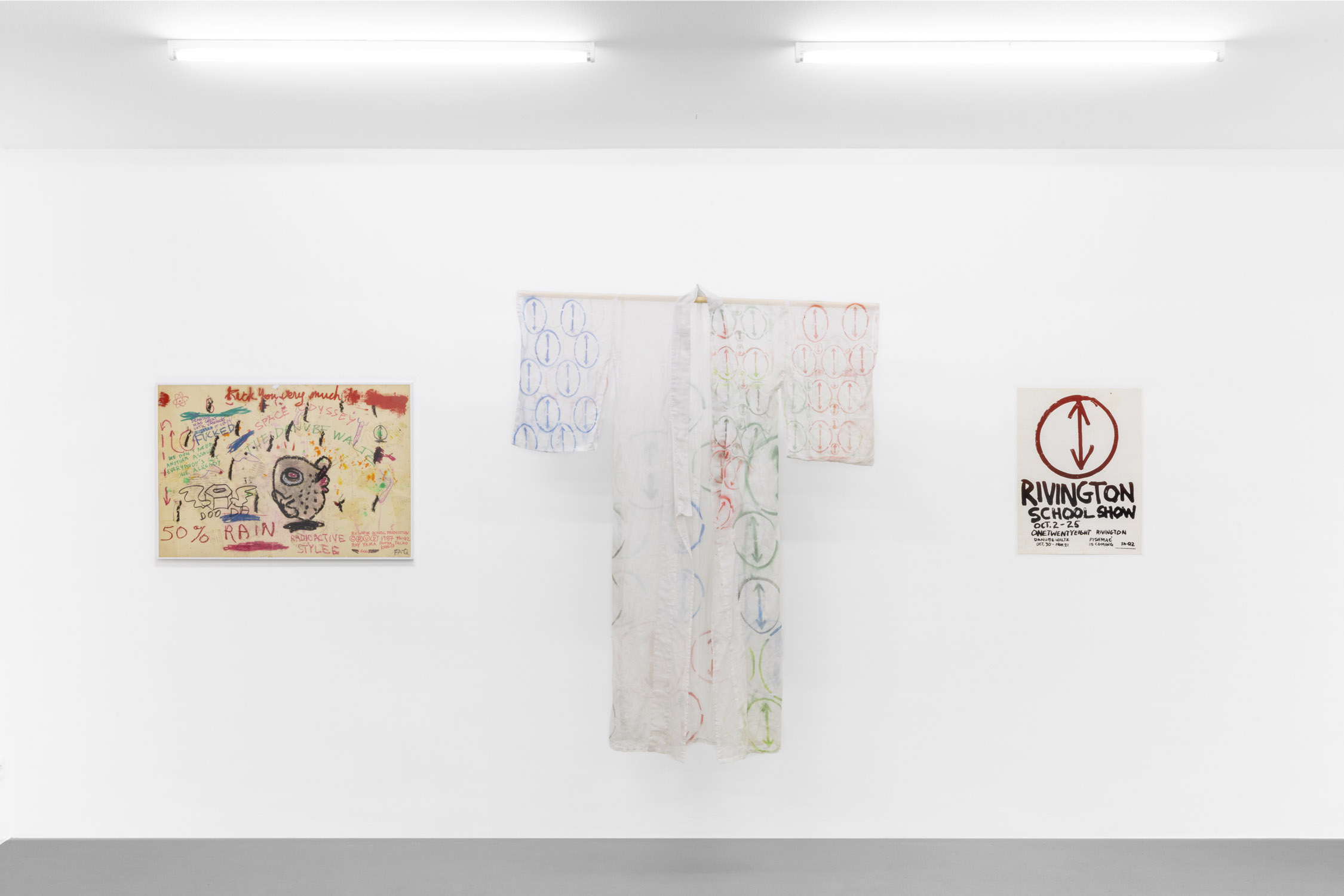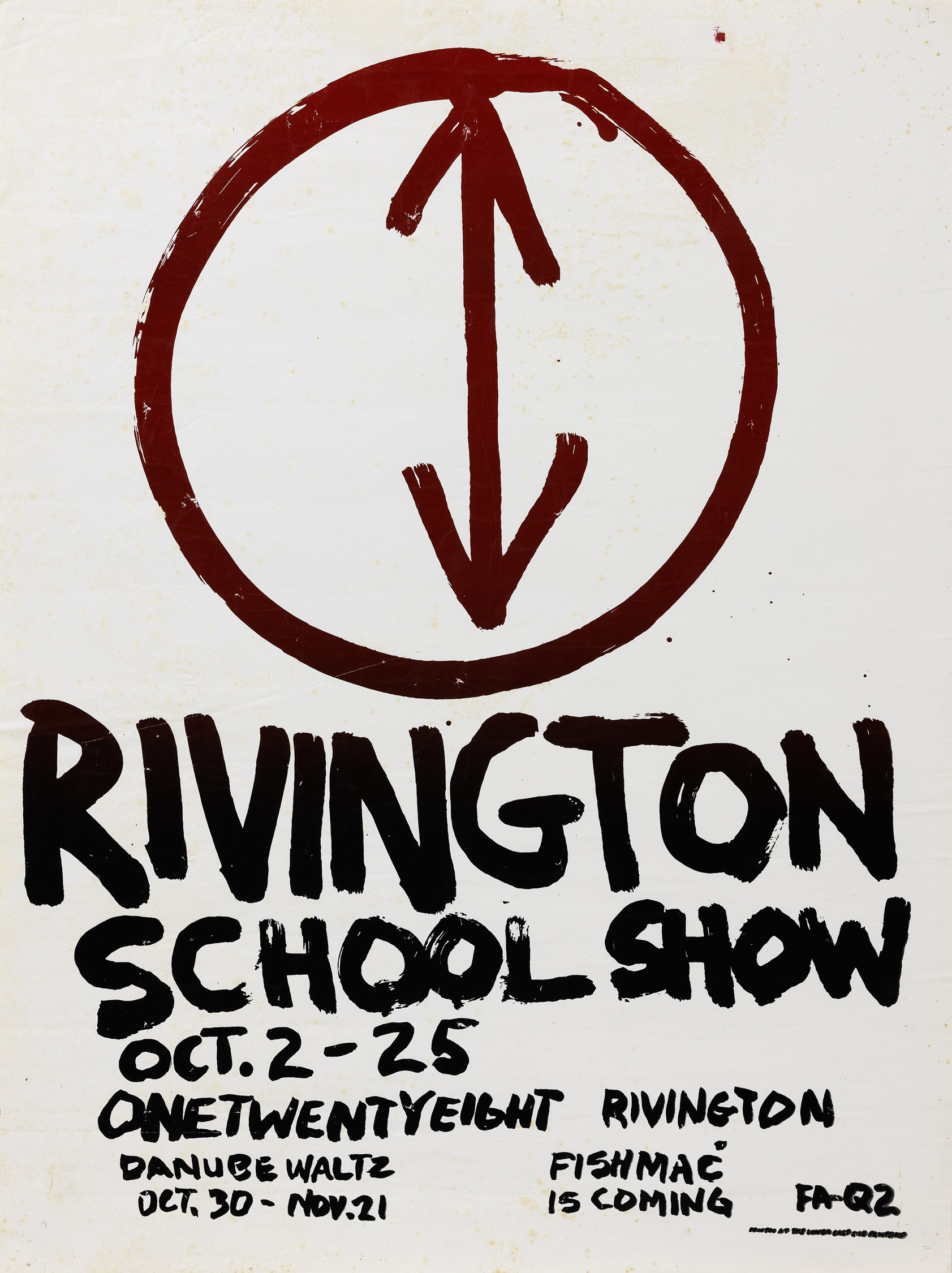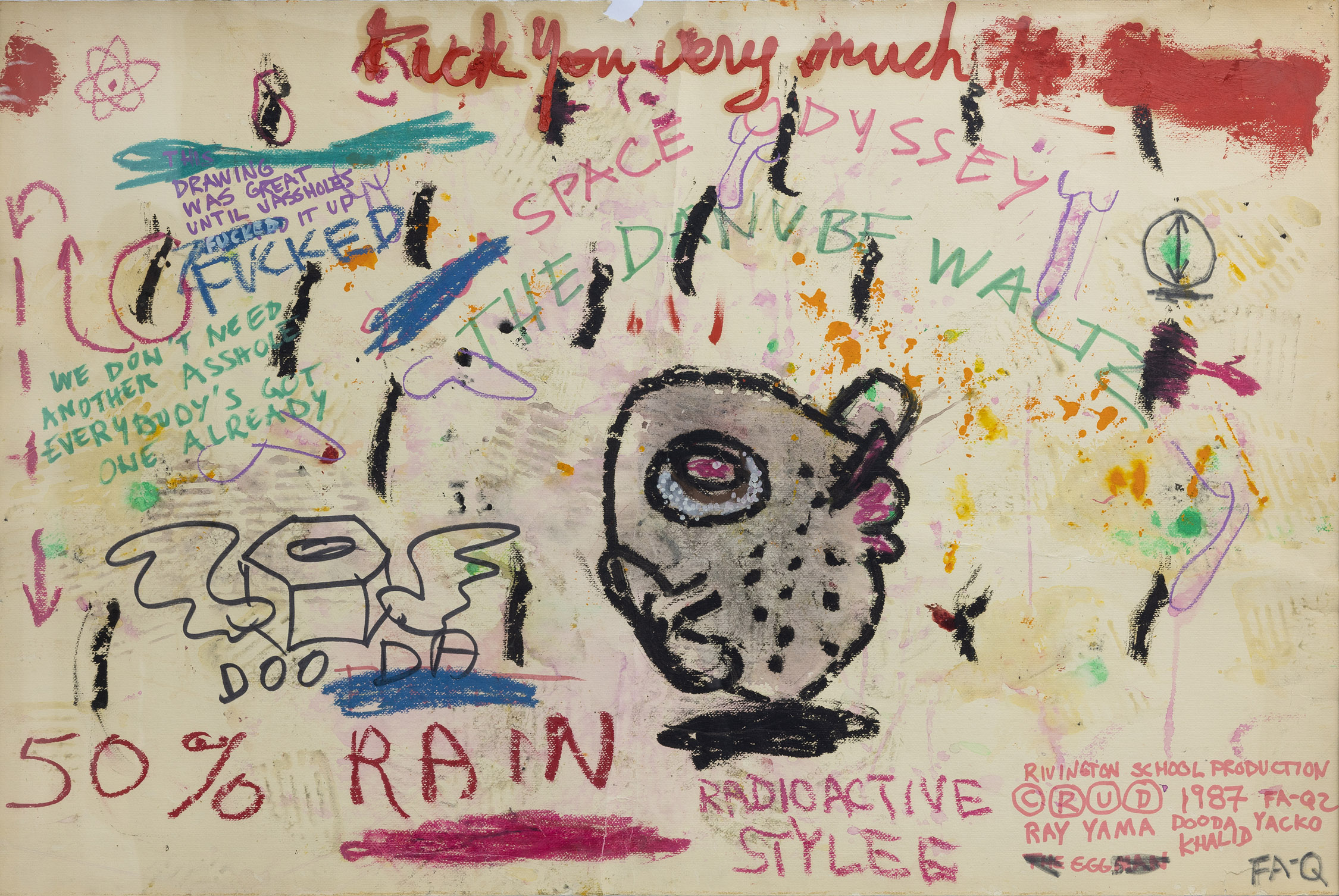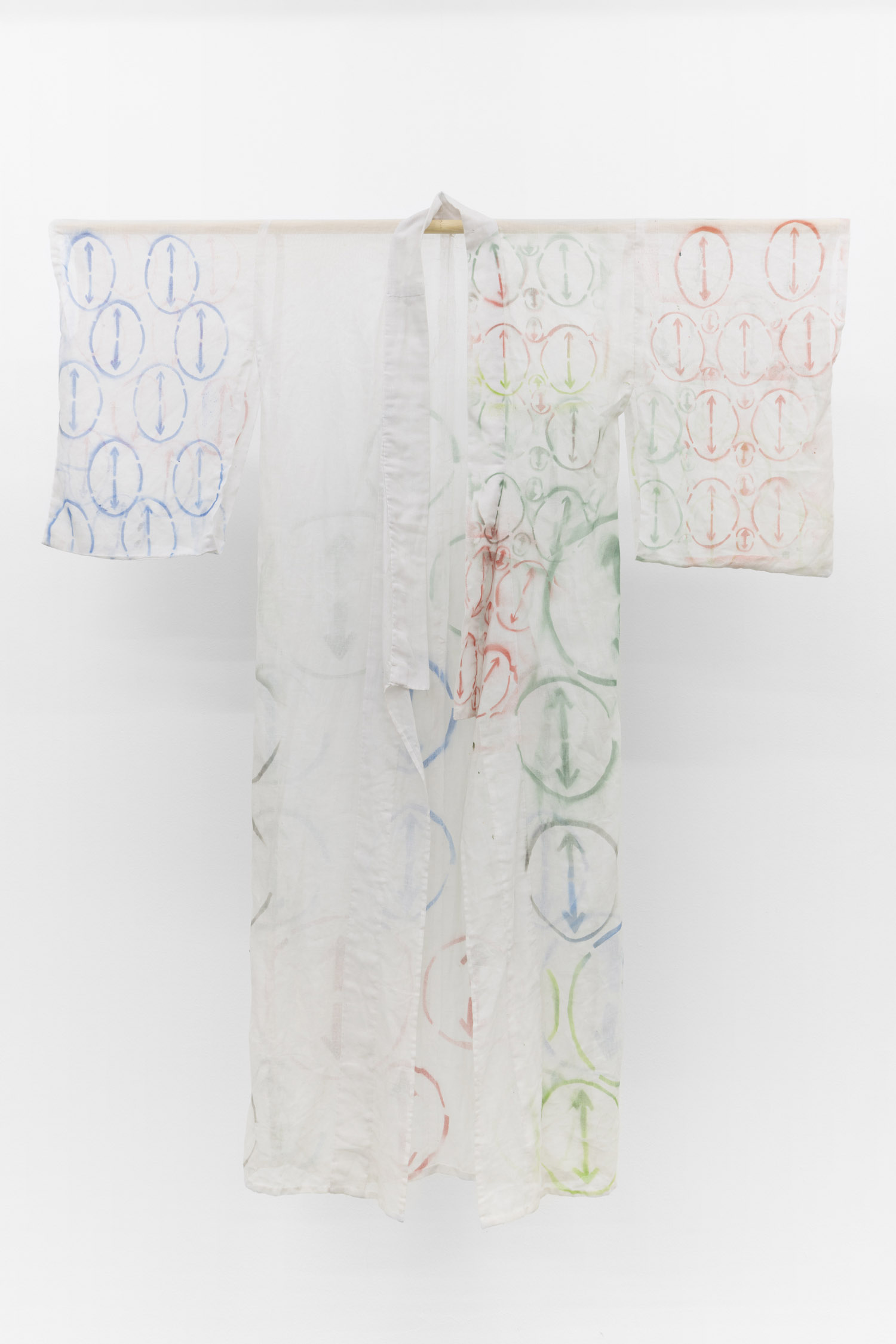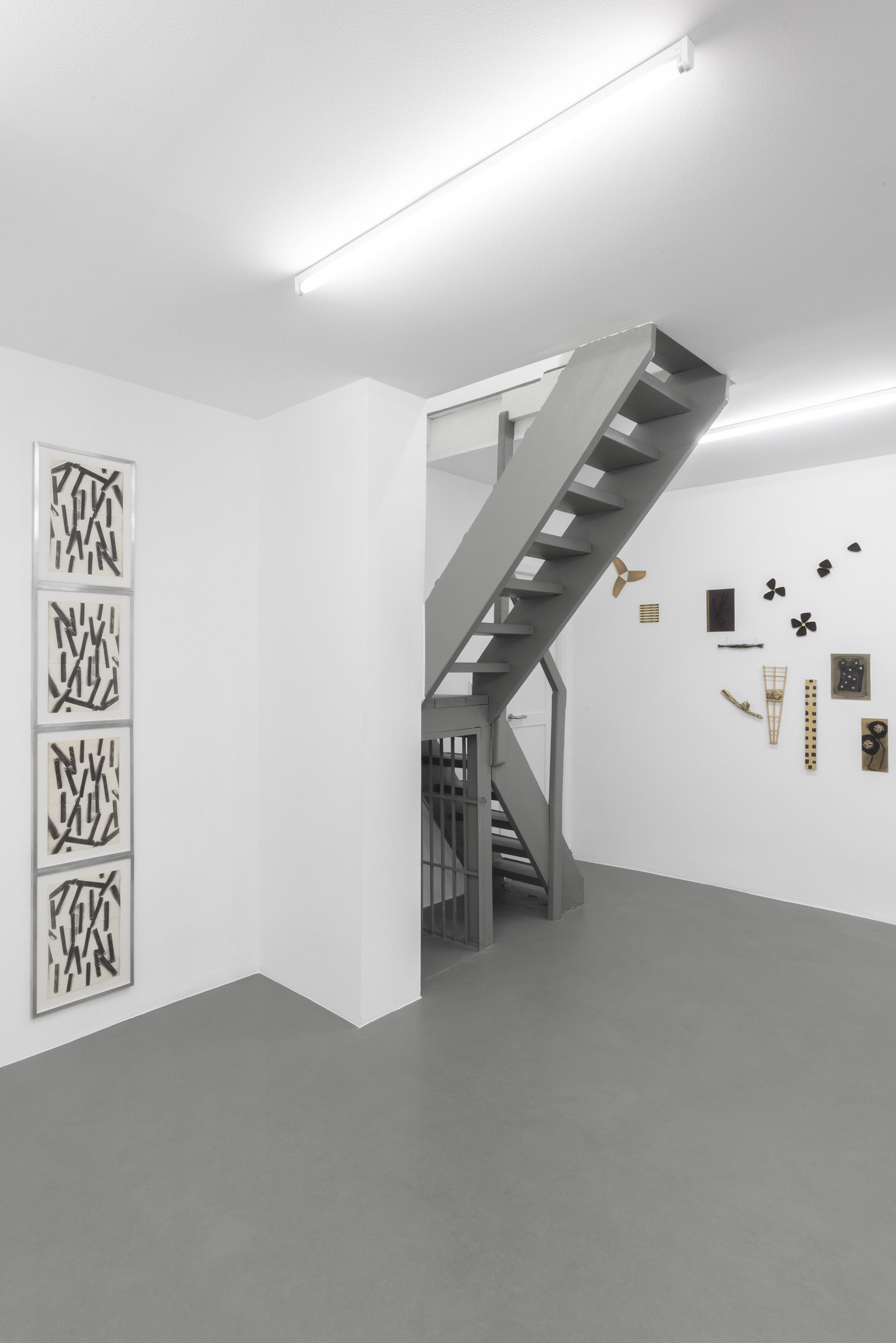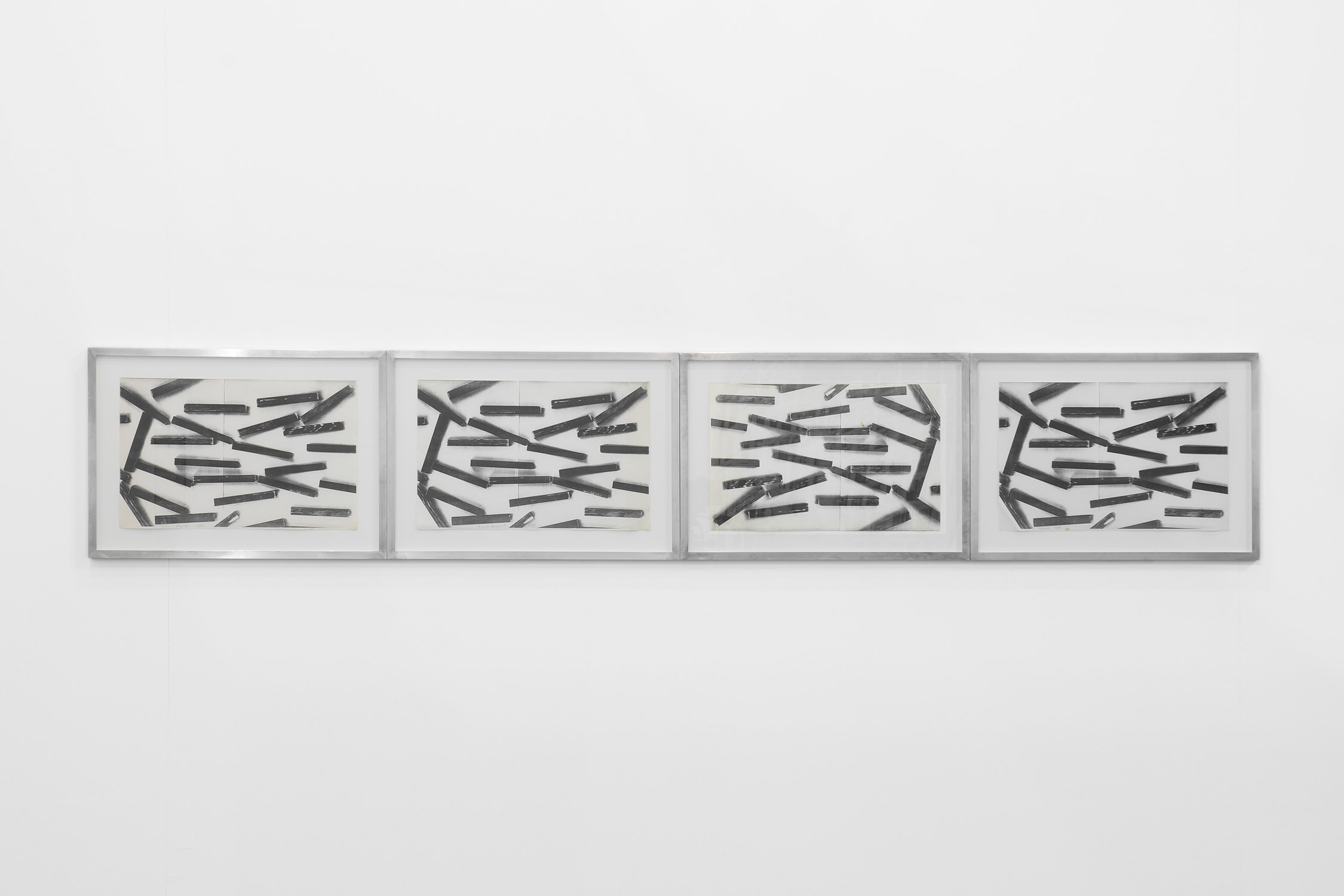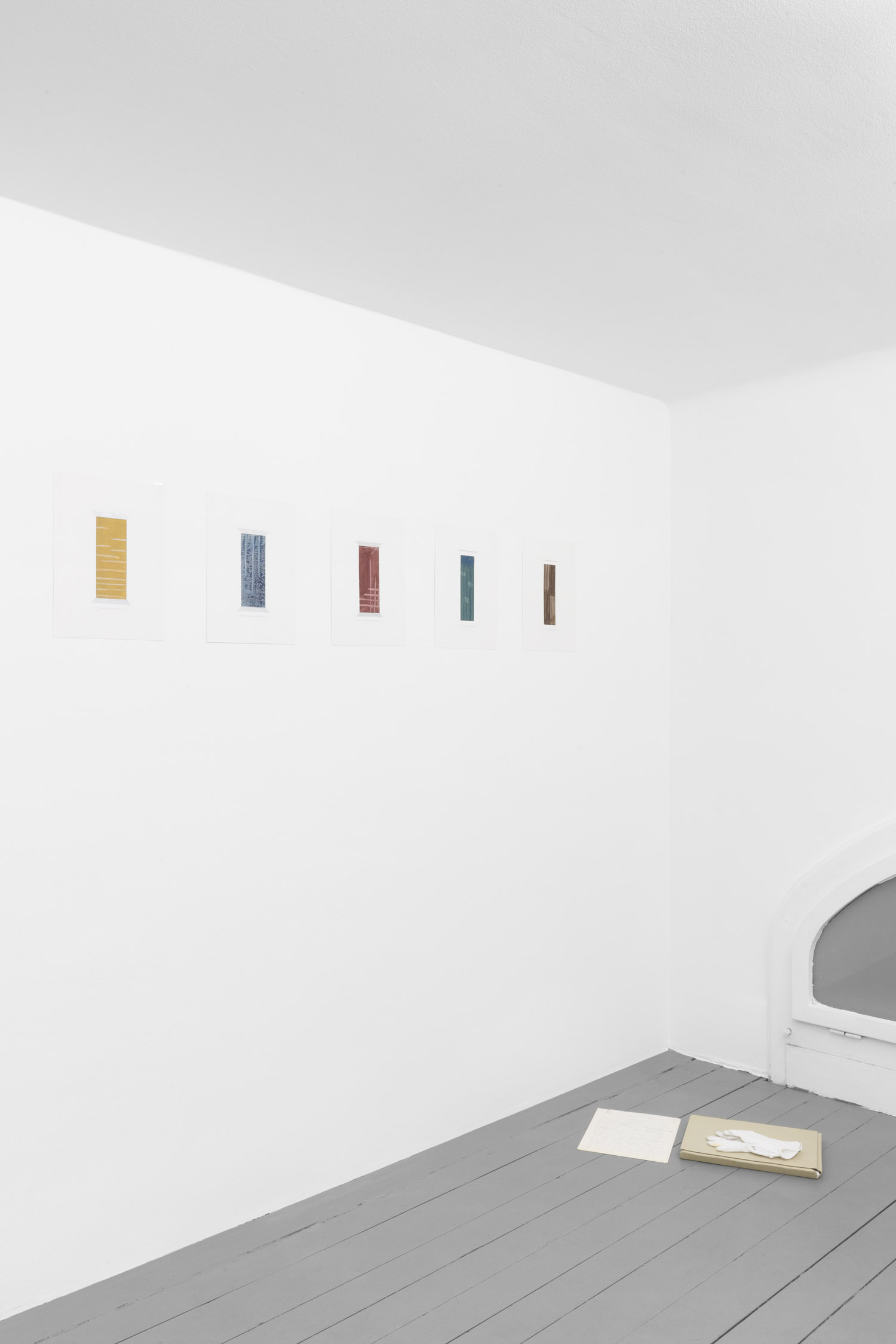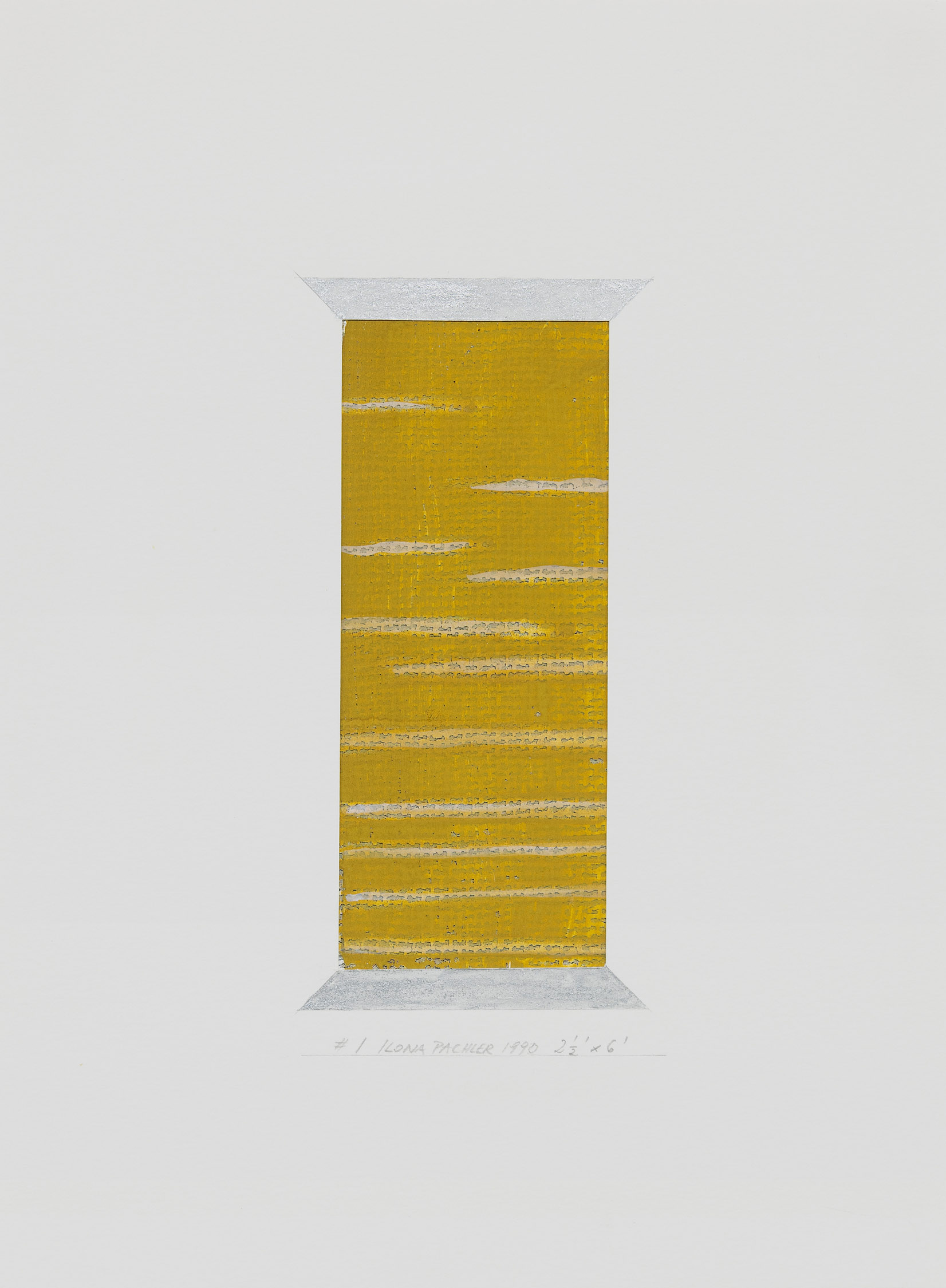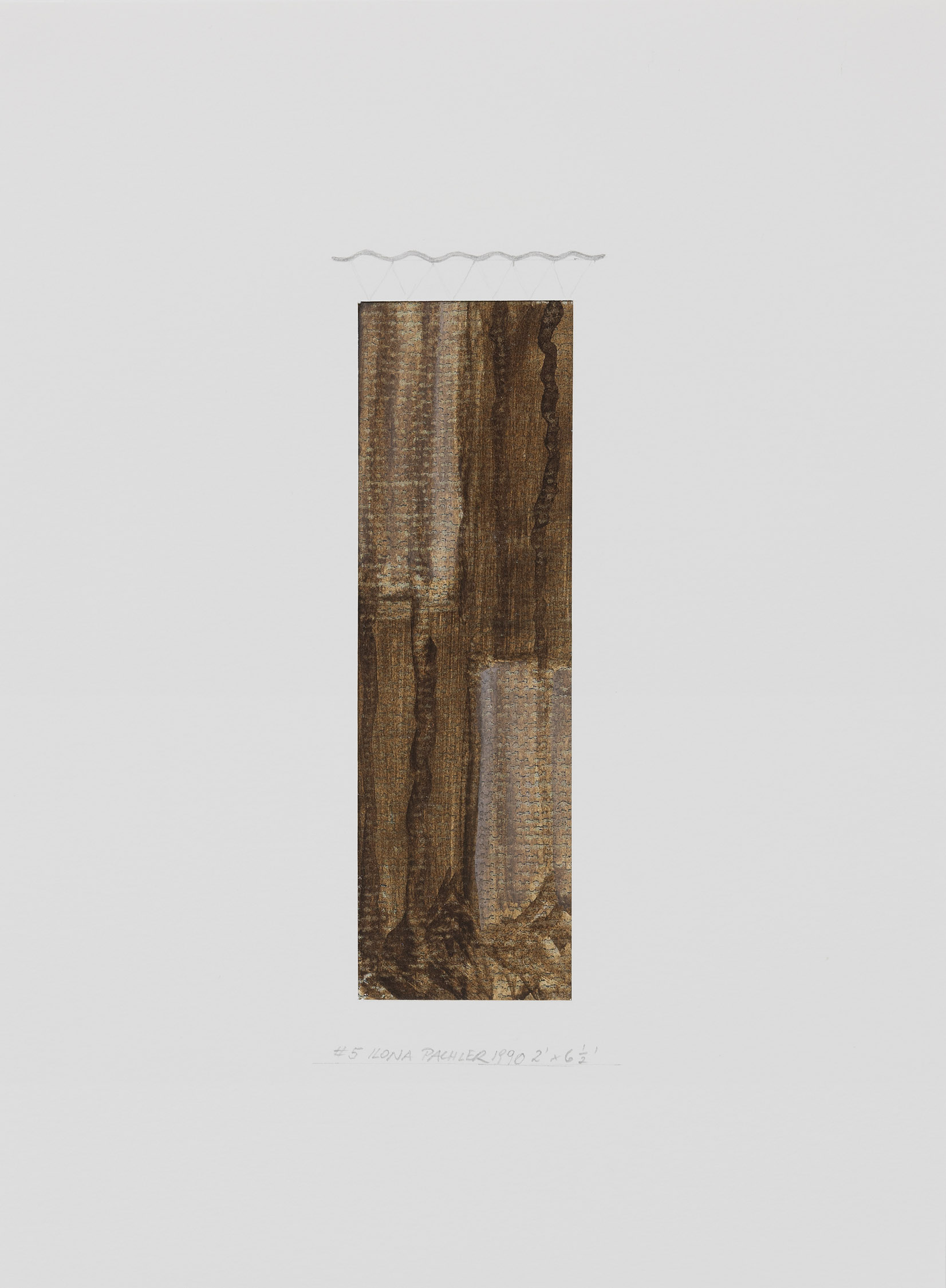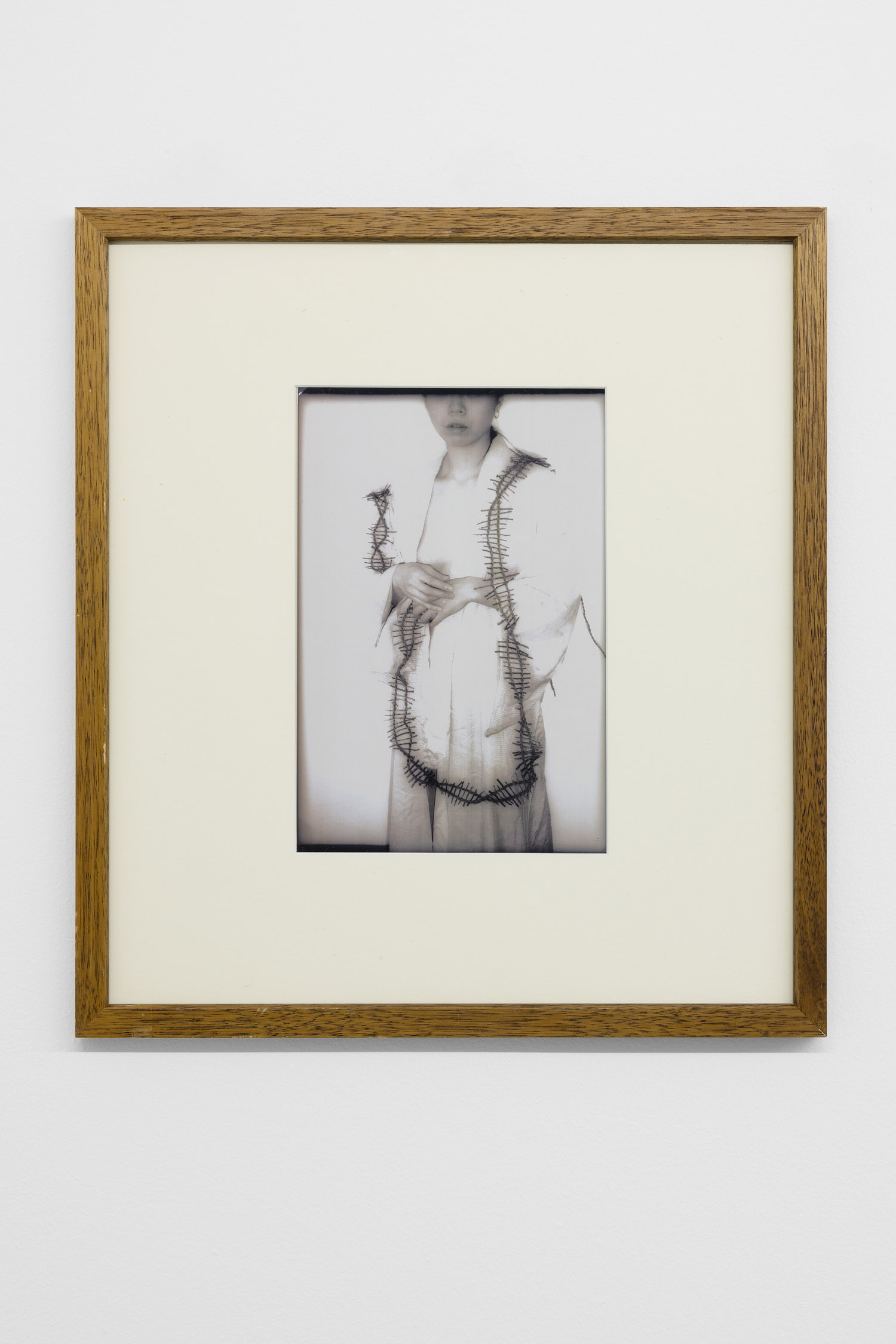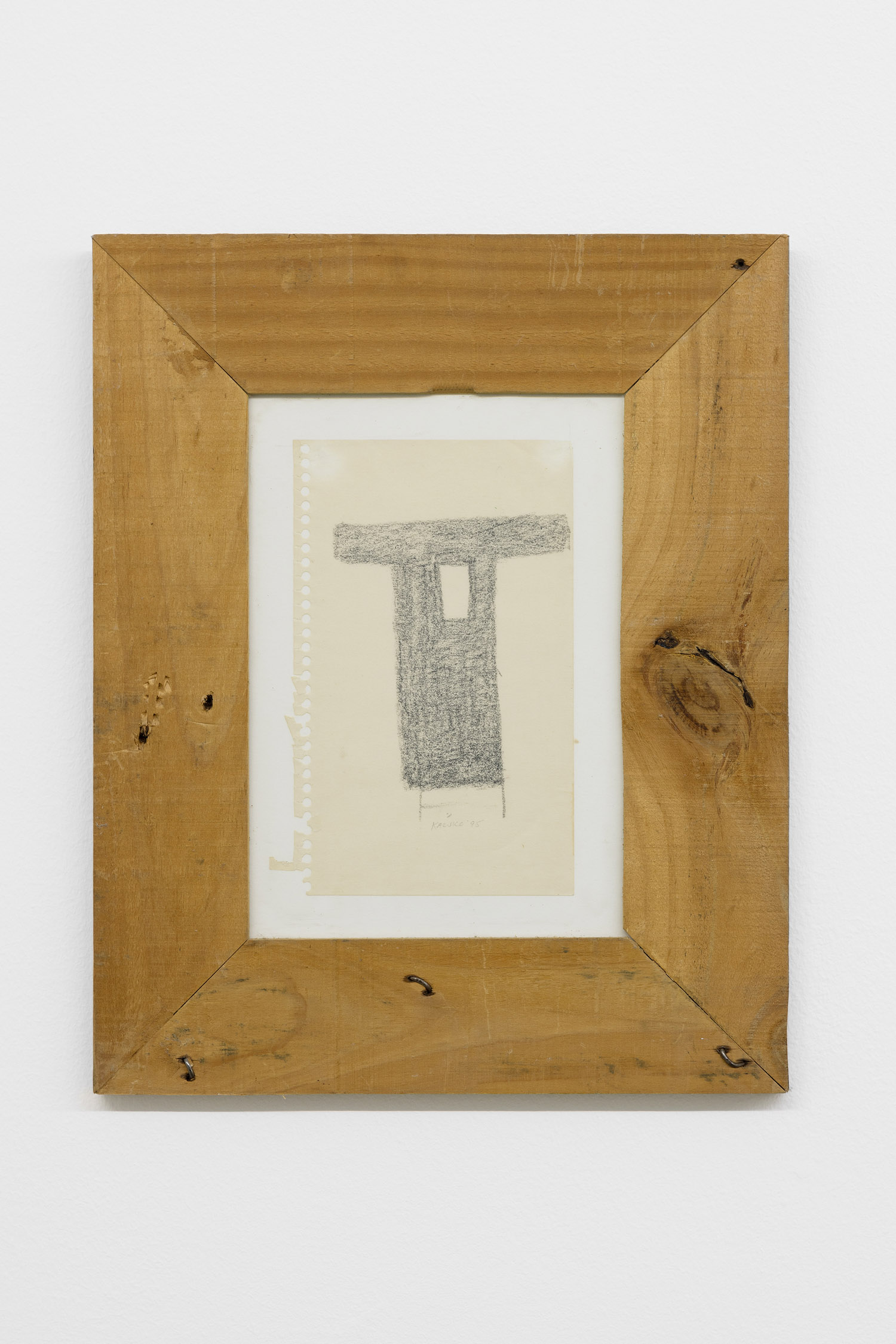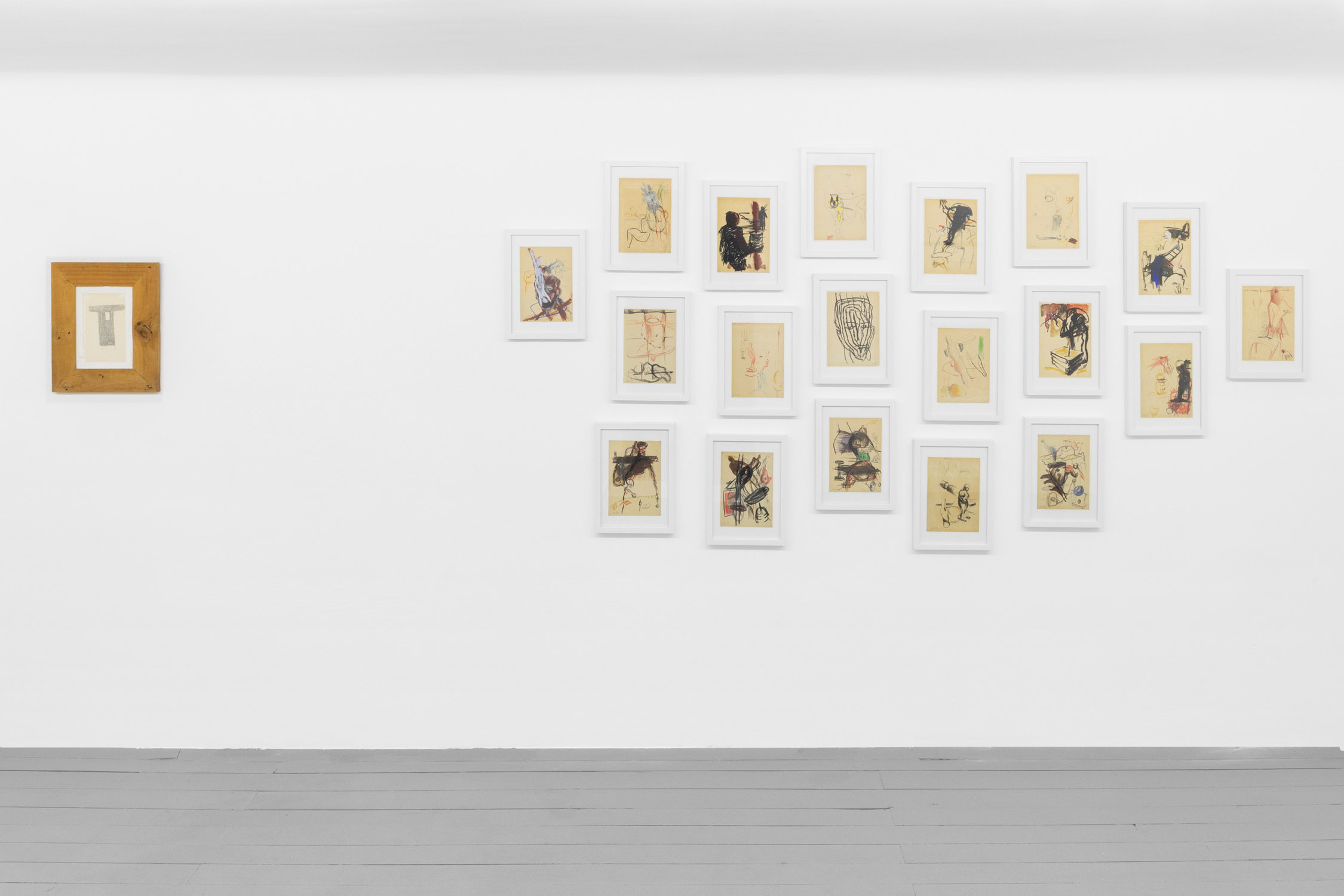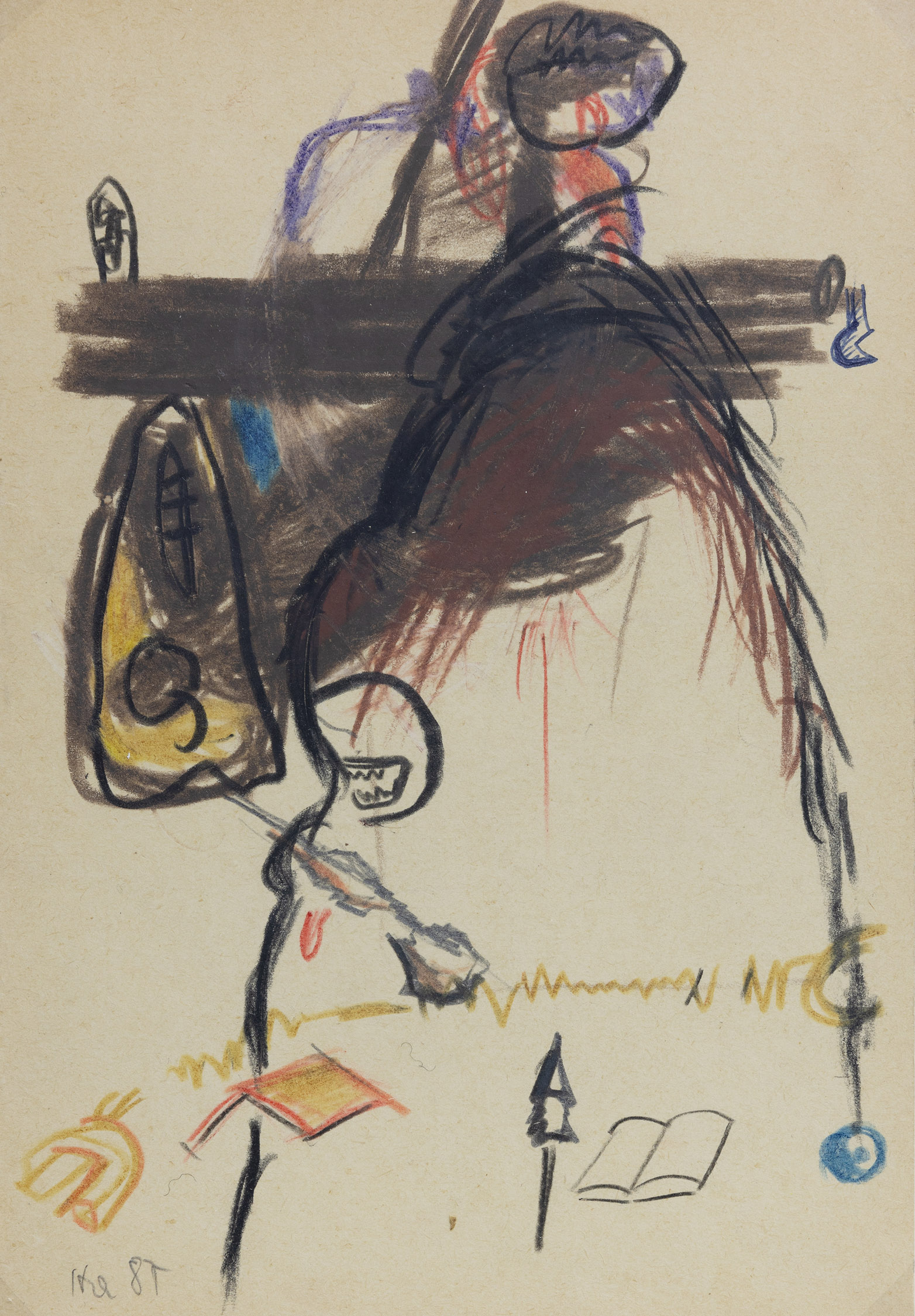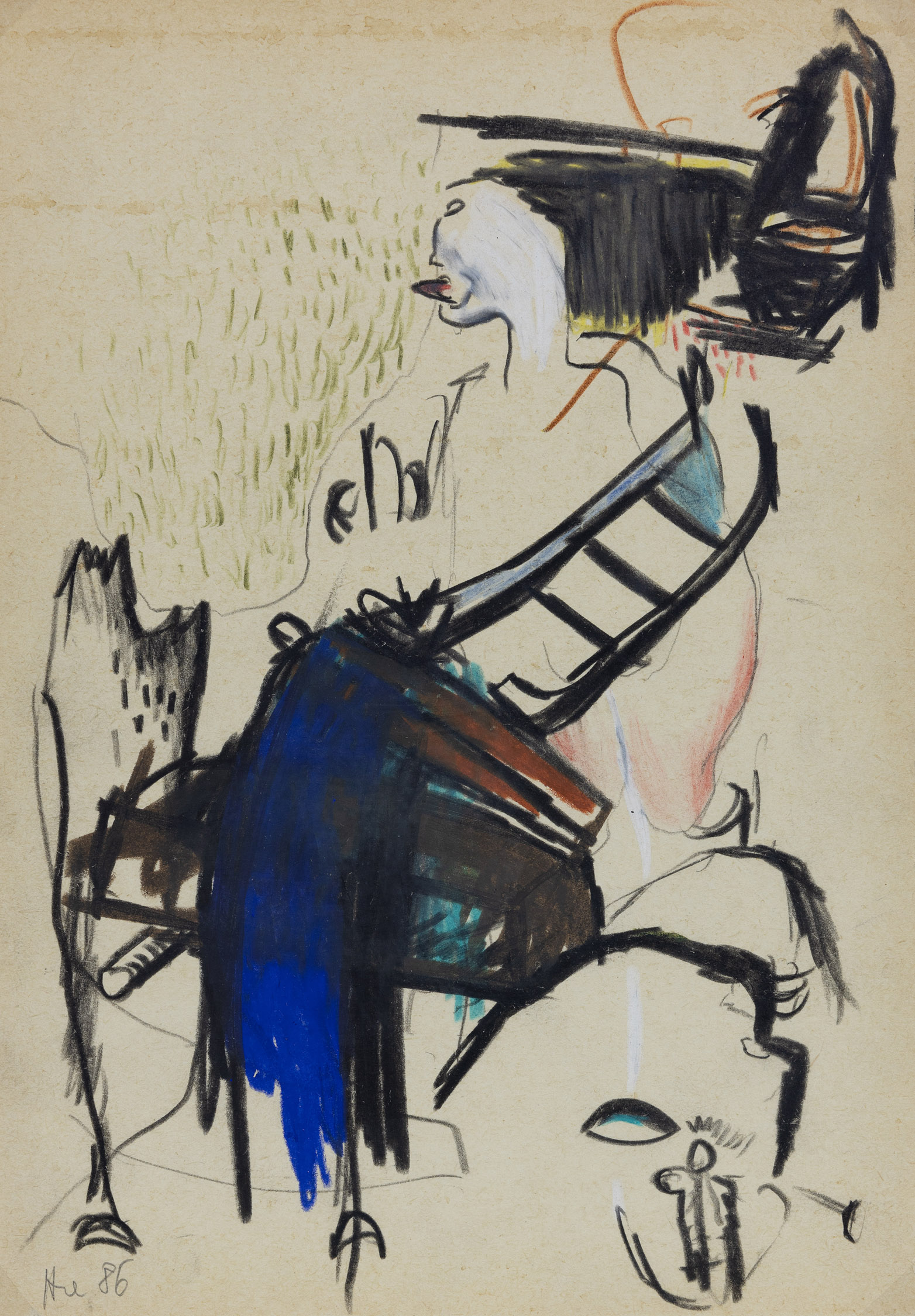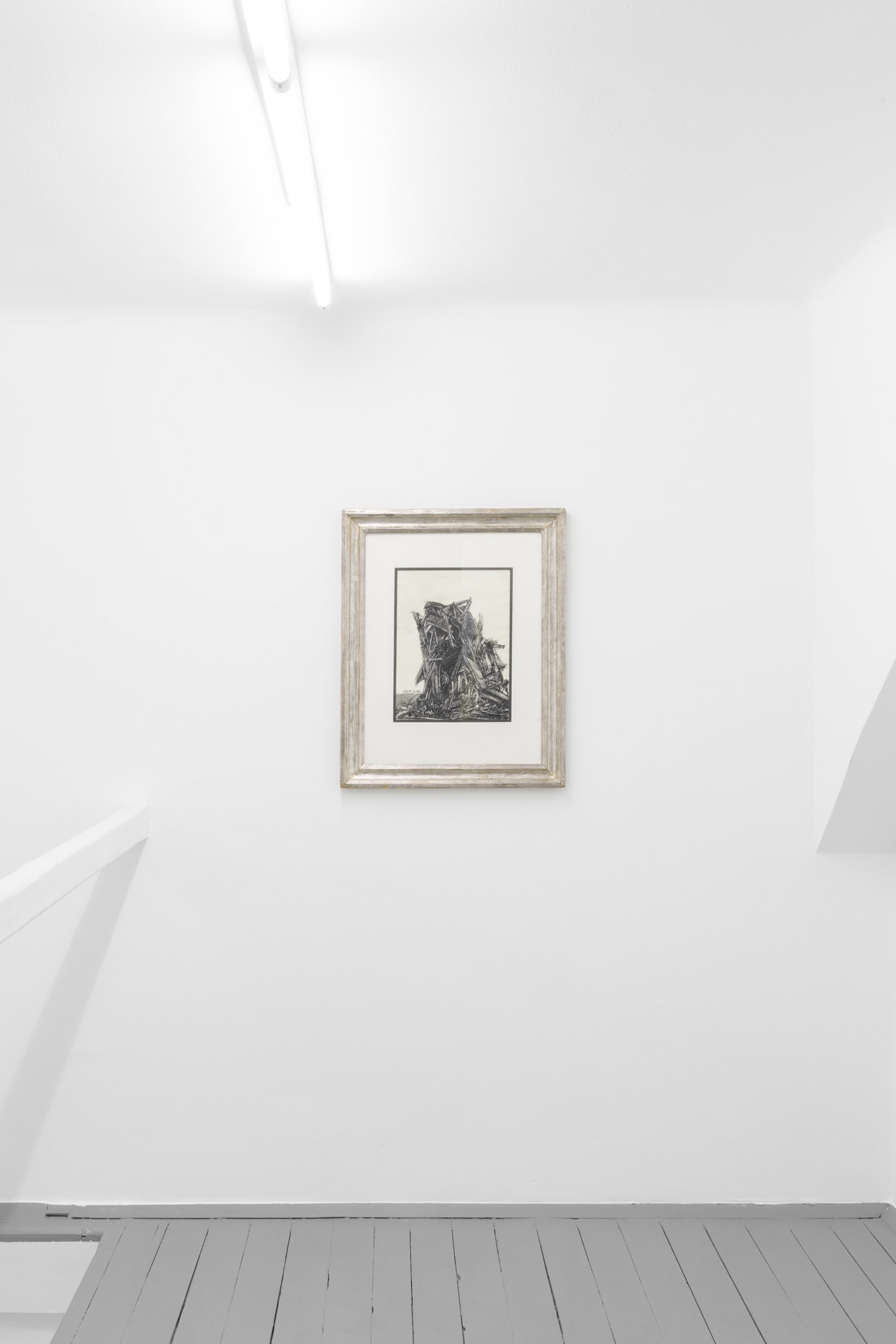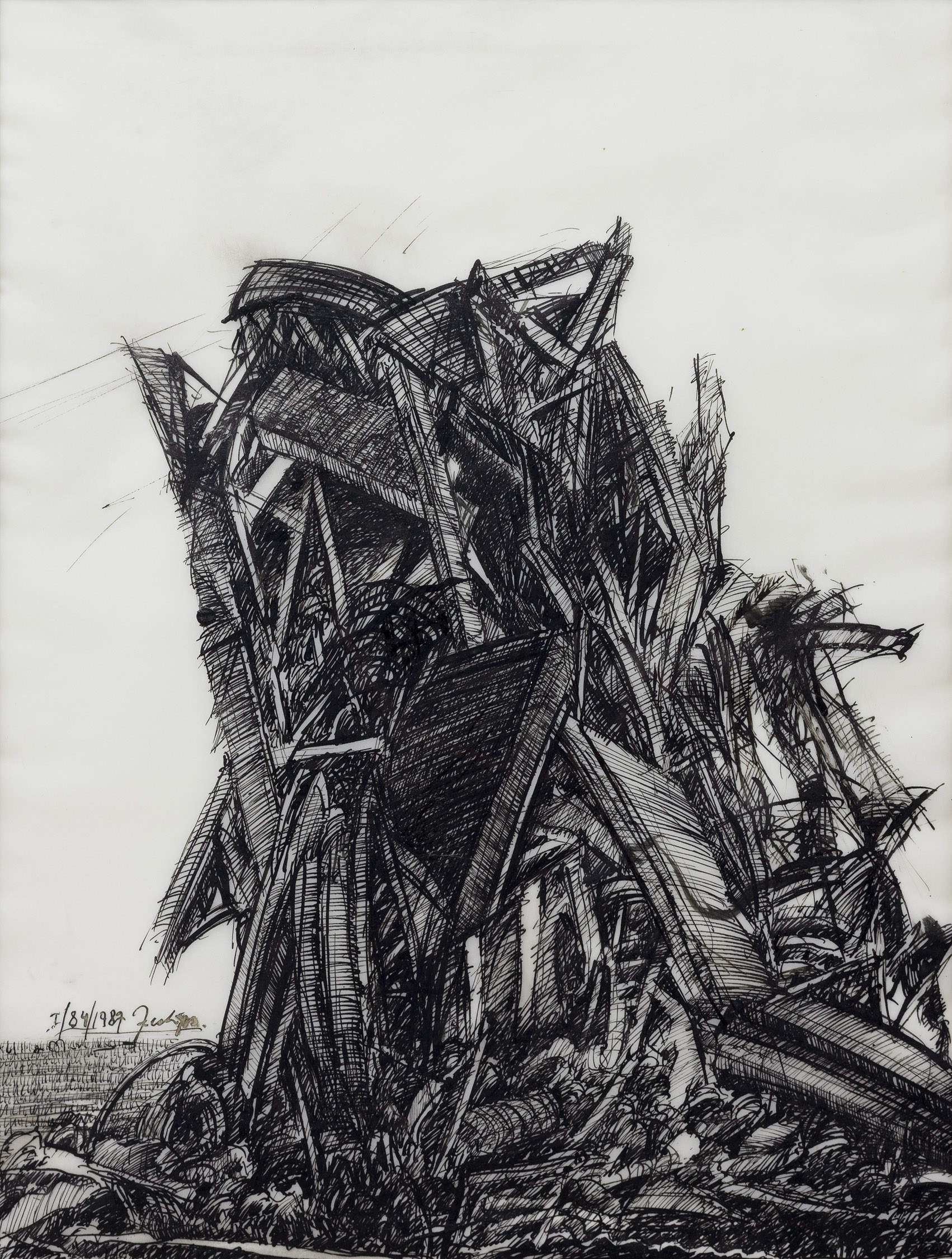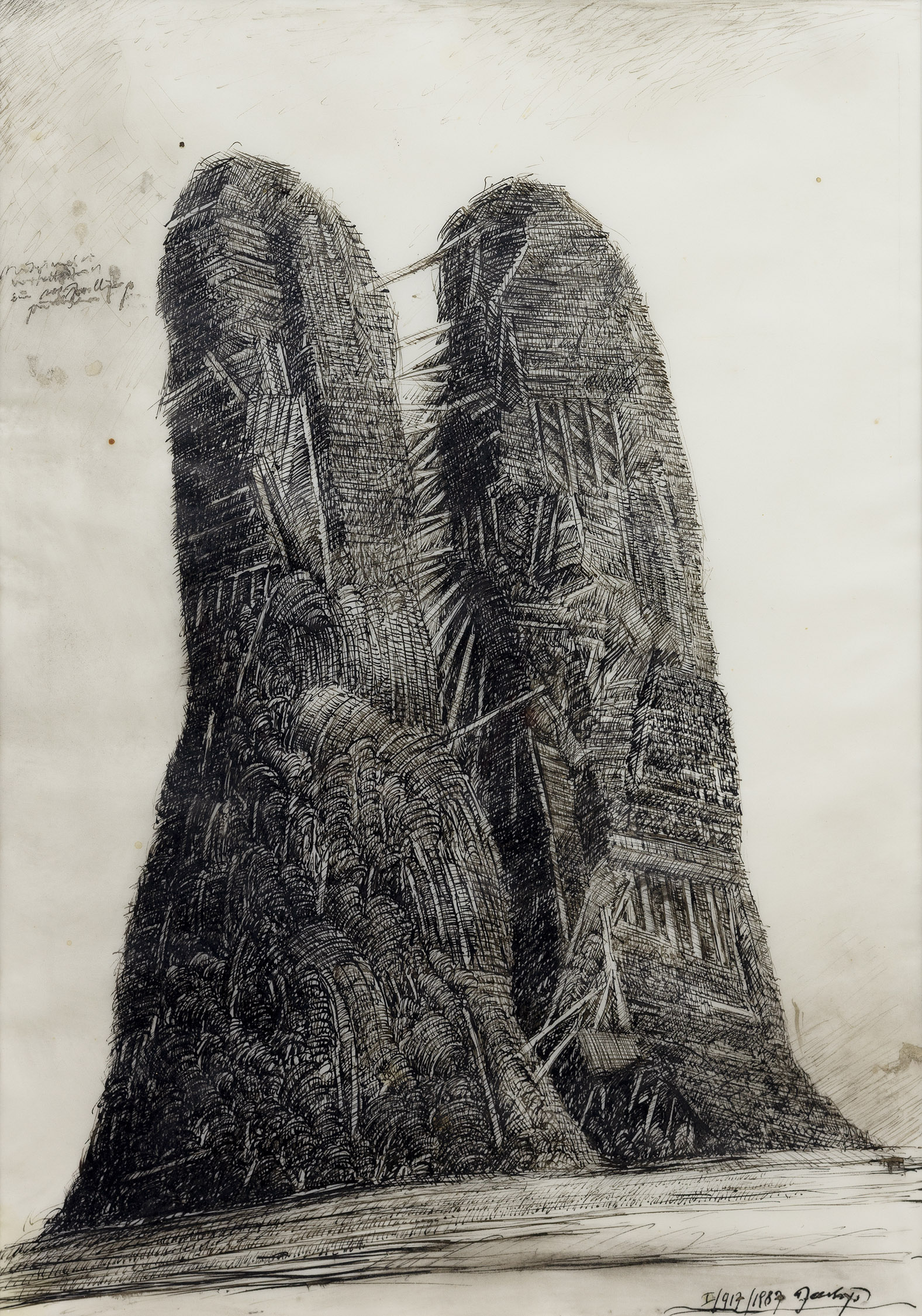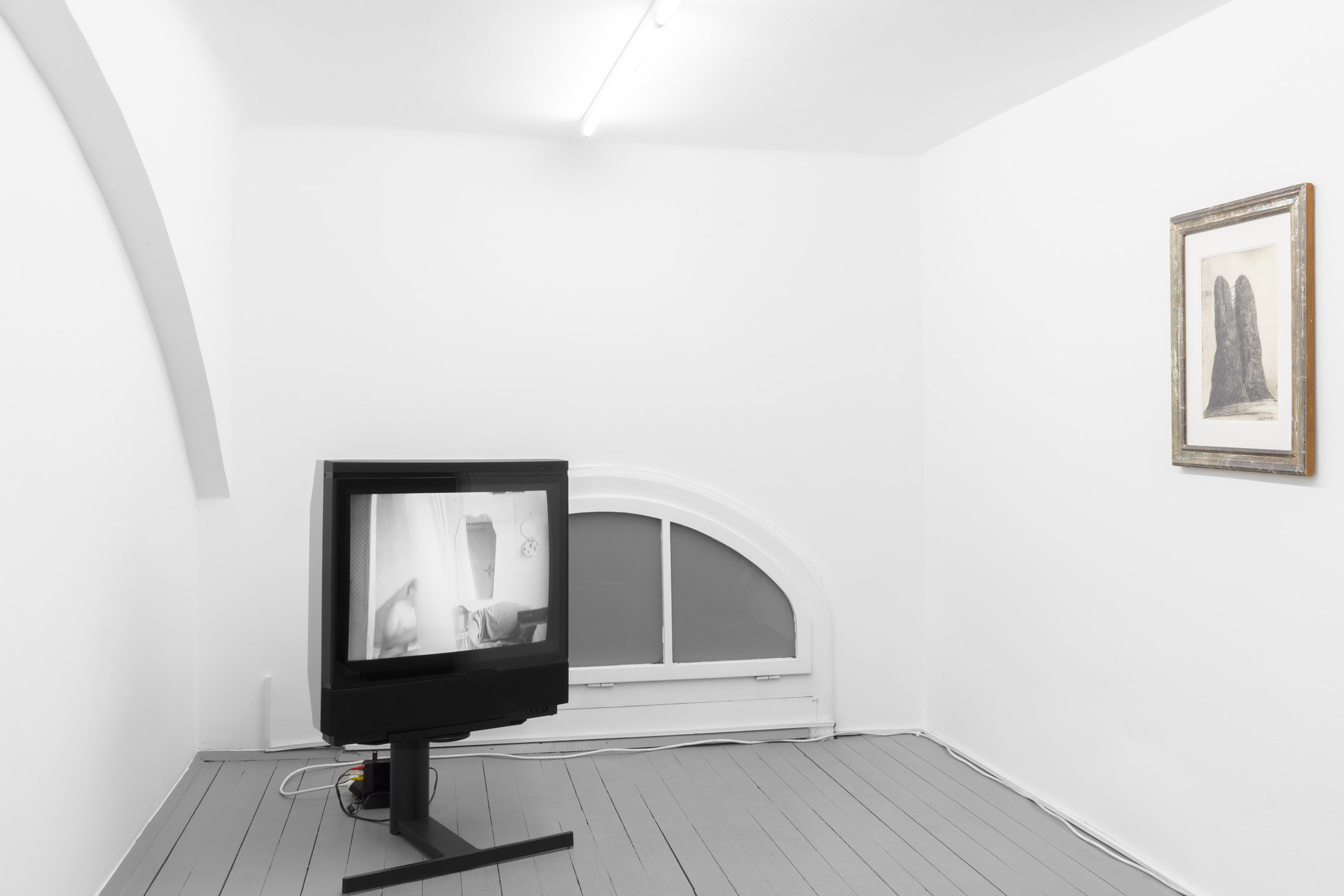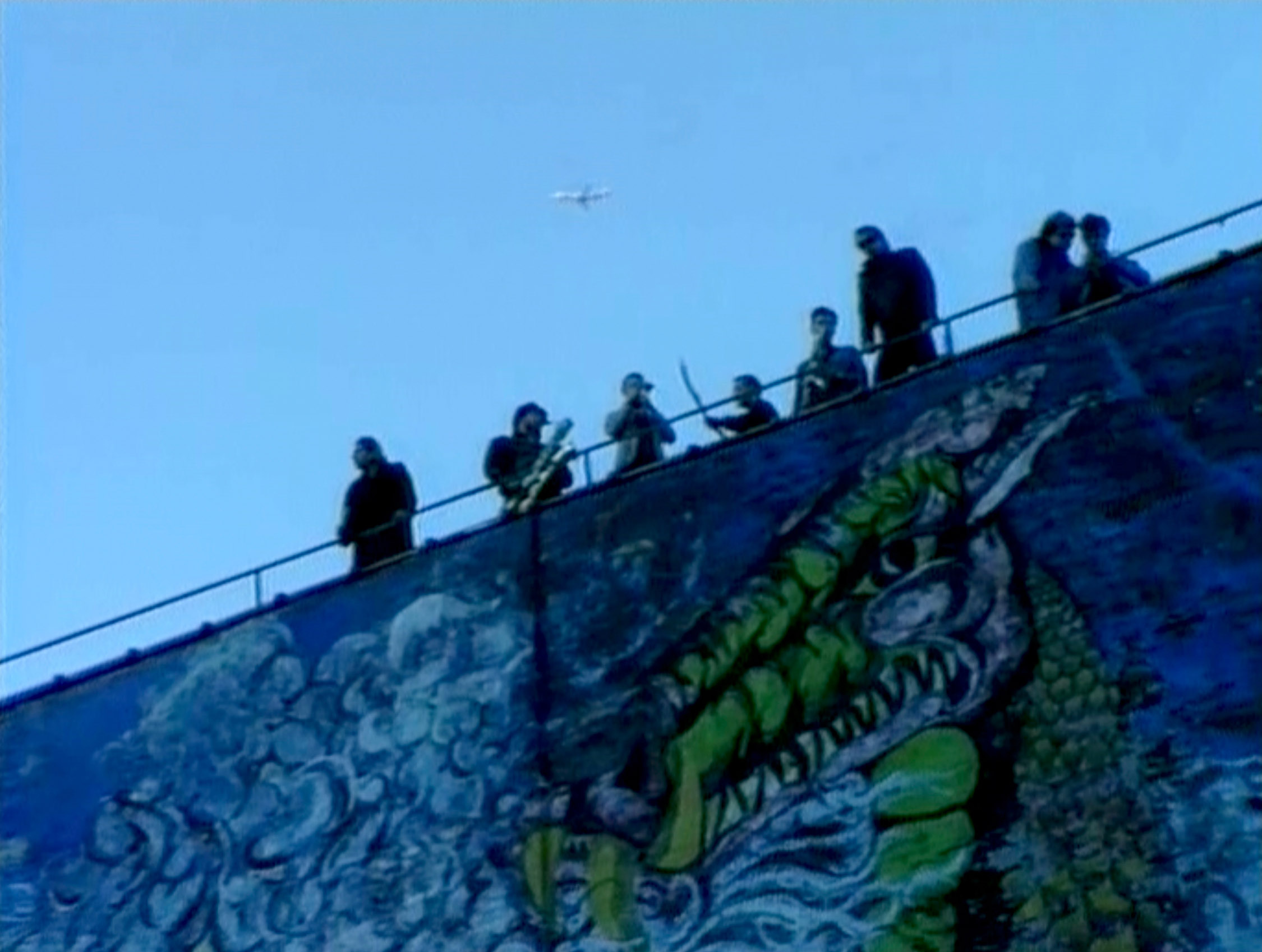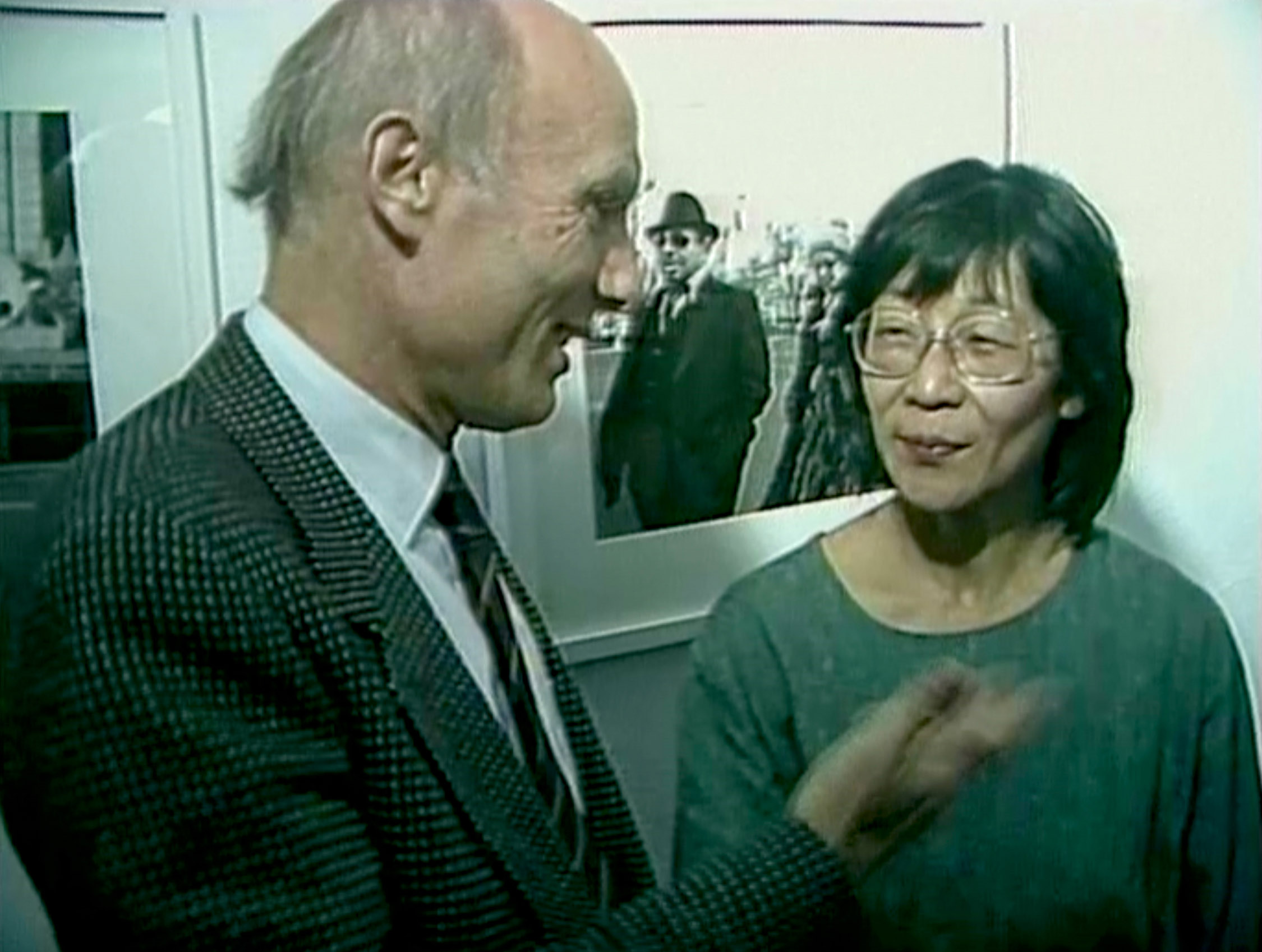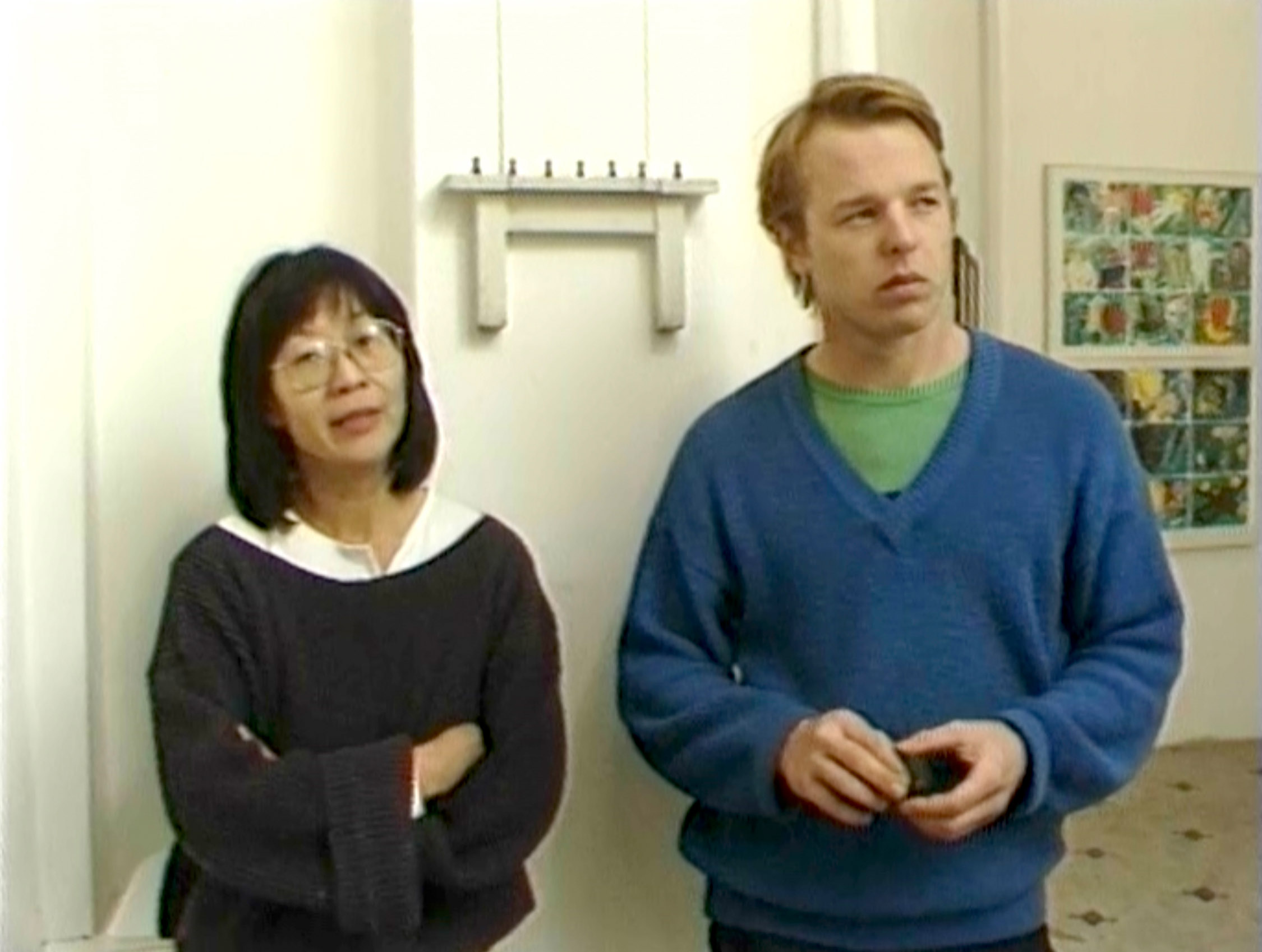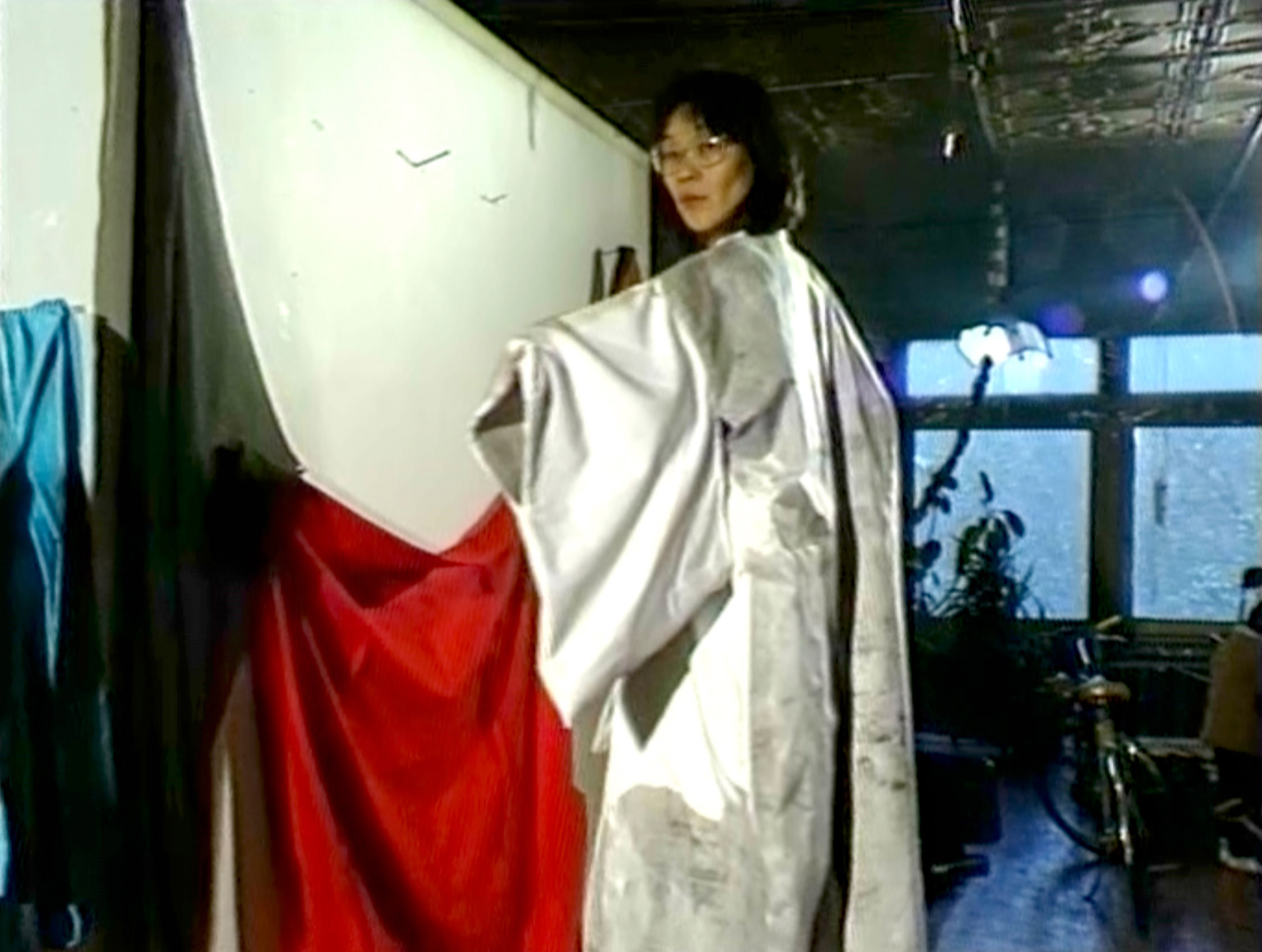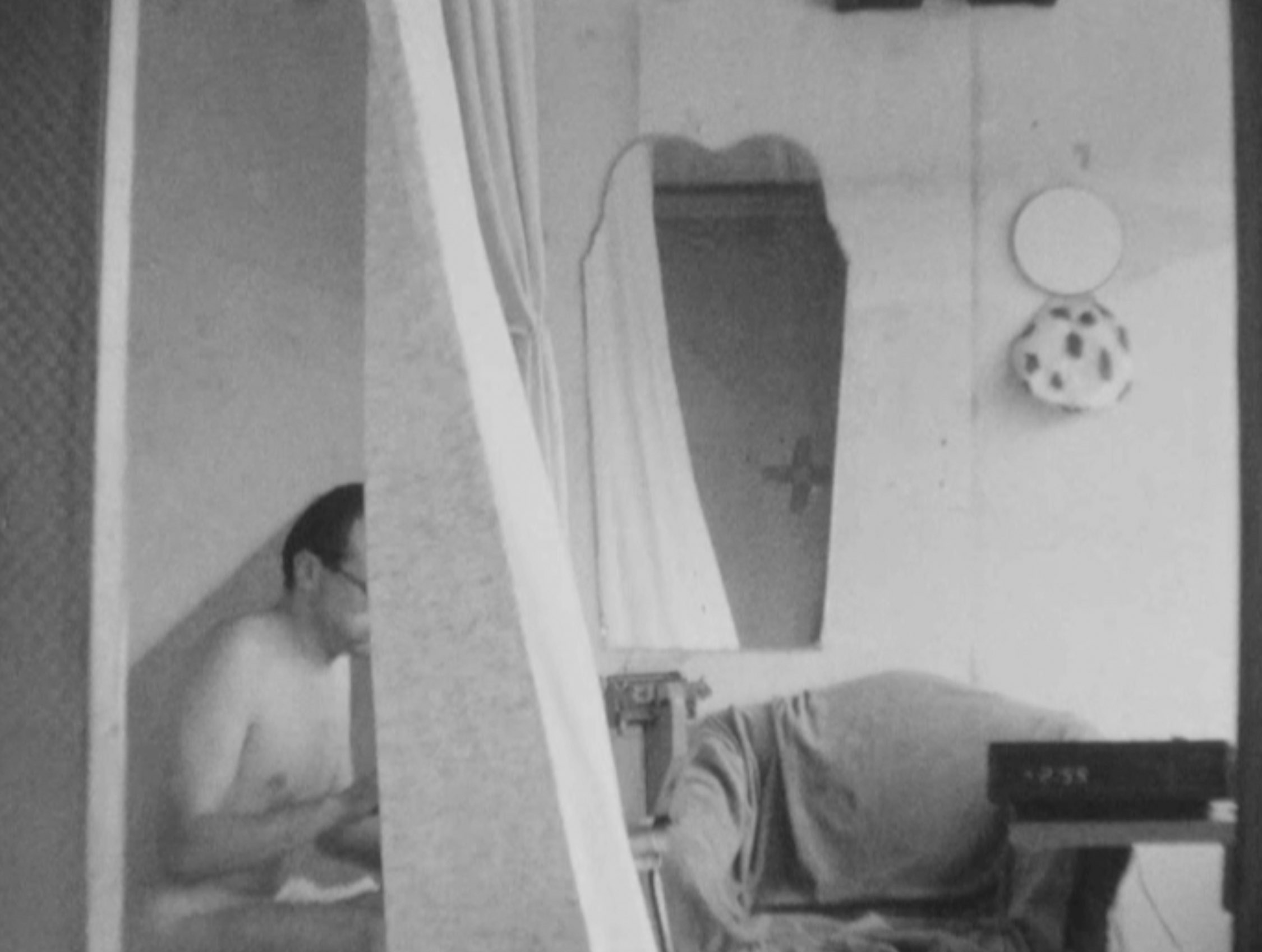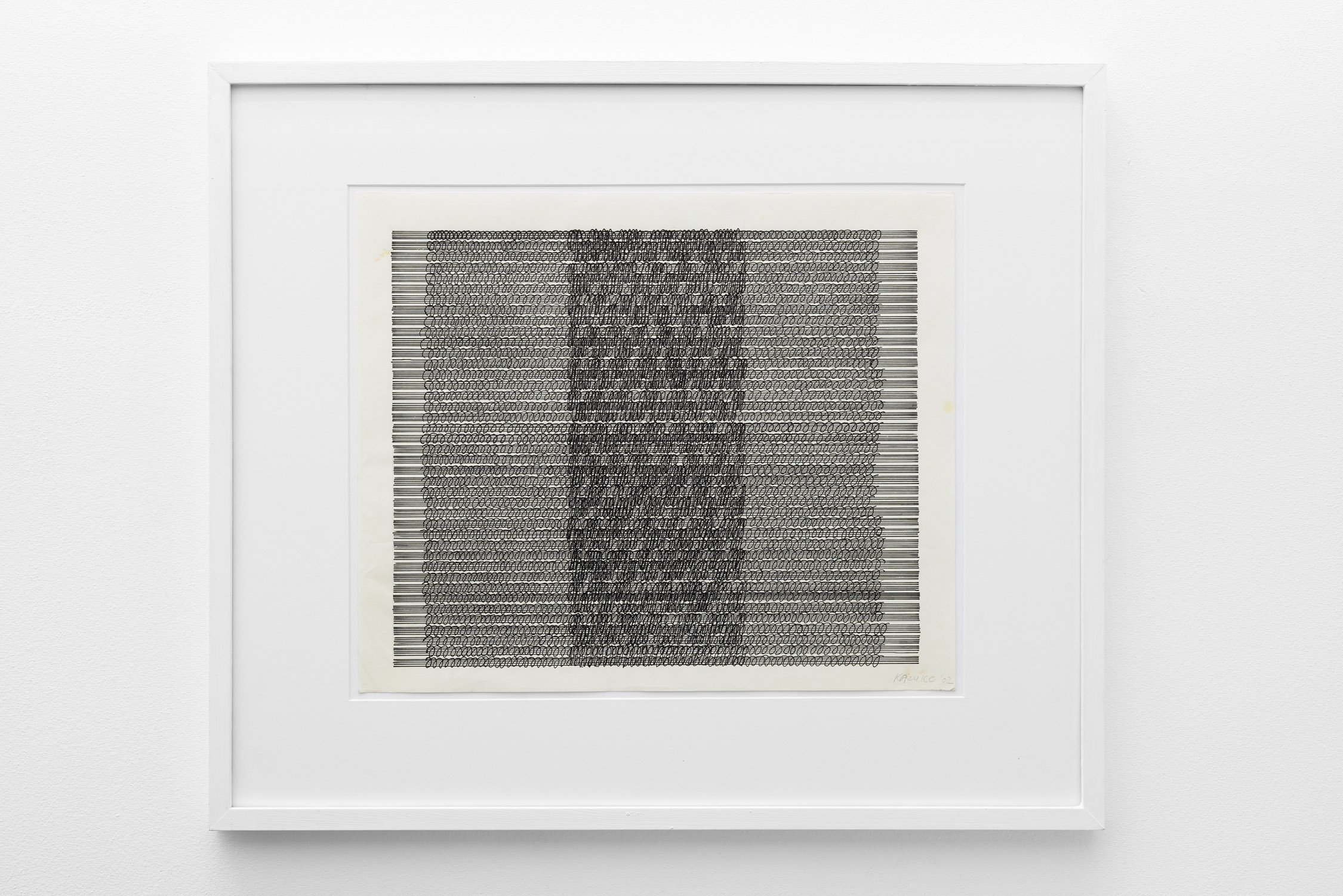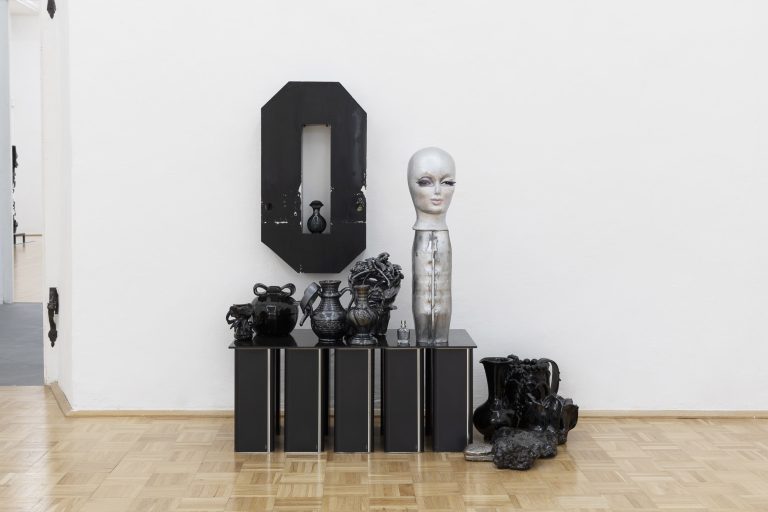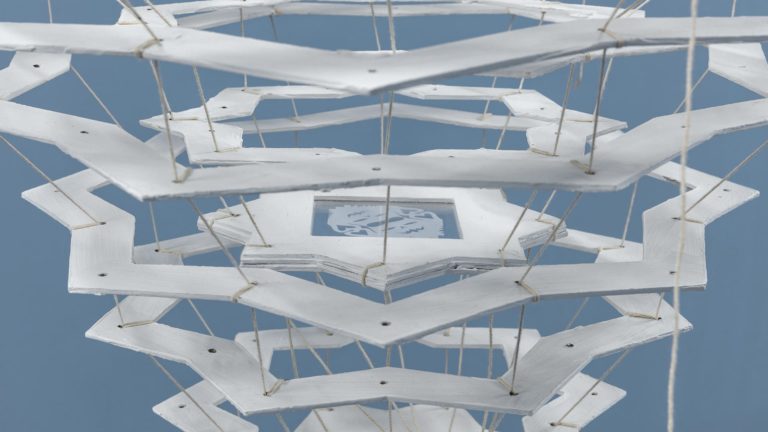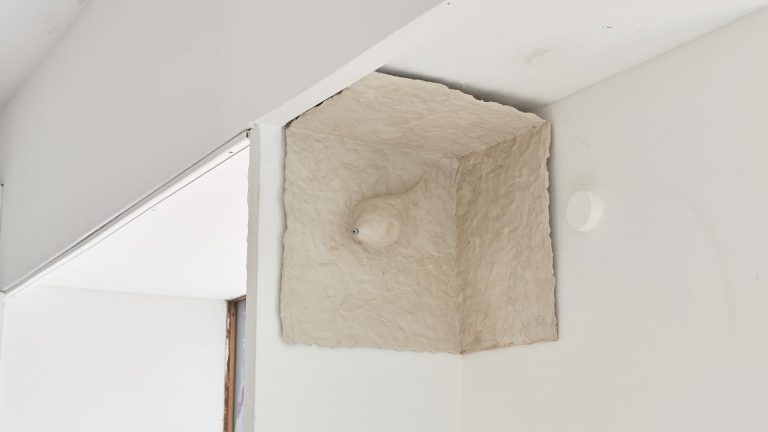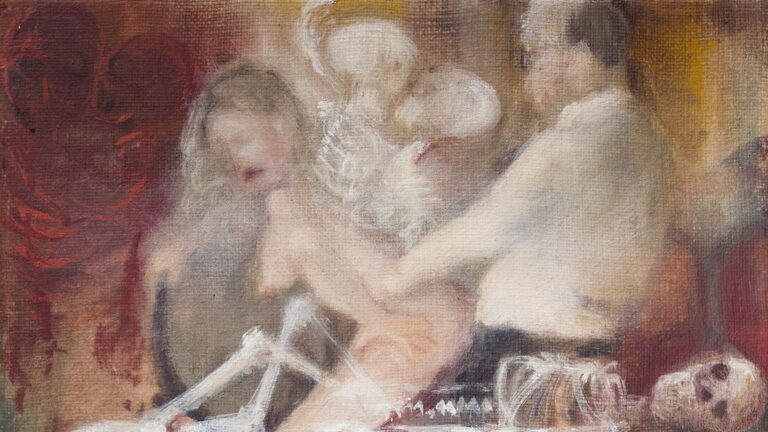Concurrent to Kazuko Miyamoto’s retrospective exhibition on view at Belvedere 21 in Vienna until March 2025, Works from Suitcases presents a first, introductory insight into the creative exchange initiated by Kazuko Miyamoto in New York, and Paul Fischnaller in Linz, Austria. From the mid 1980s, Miyamoto’s loft, her community art space Gallery Onetwentyeight, and Fischnaller’s alternative art space Hofkabinett provided the locations for a flourishing artist exchange. Works from Suitcases takes its title from the eponymous exhibition held at Hofkabinett in 1987 and focuses on the initial exchanges until 1990. Rarely, or even previously unseen artworks by Austrian artists Peter Hauenschild, Karl-Heinz Klopf, Ilona Pachler, and Othmar Zechyr are exhibited alongside video documentation by Markus Fischer as well as a music video by the Austrian pop band Die Mollies. A collection of recently uncovered mid 1980s slides taken by Miyamoto of the Lower East Side give an insight into time and location.
While being the unrivalled centre of the commercial art world, downtown Manhattan and especially the Lower East Side provided space for an immense variety of alternative creative venues ranging from the infamous CBGB, where Die Mollies performed in 1987, to art spaces such as ABC No Rio, No Se No, and from 1986, Miyamoto’s own Gallery onetwentyeight. Some of the exhibited works are by, or in reference to, the Rivington School, an alternative artist group founded in 1983. Predominantly involved in immersive social practices such as large-scale, waste-metal sculpture, performance or street painting the Rivington School fostered an artistic practice beyond the limitations of the white cube and deliberately integrated itself into the local neighbourhood.
It is no coincidence that Miyamoto opened her own art space in 1986 on 128 Rivington Street. Here, she supported not only members of the Rivington School through numerous exhibitions but was able to envision and create her very own, inclusive artistic universe. Being a historically diverse and immigrant-based neighbourhood, Miyamoto identified her own biography, having moved from Tokyo to New York in 1964, with the identity of the Lower East Side and integrated its specifics into numerous of her artworks, some of which, such as the 6 o’clock Kimono are on display in this exhibition with other examples concurrently on display at Belvedere 21. Likewise, some of the exhibited works by Austrian artists were inspired either by Miyamoto’s practice or by other local creative movements.
At the same time in Linz, an alternative art world existed beyond the institutional and often exclusive one found in Austria’s capital Vienna. Artist-to-artist movements, spaces for experimentation and self-organised initiatives paralleled the developments in the Lower East Side, with Fischnaller’s art space Hofkabinett and Miyamoto’s Gallery onetwentyeight sharing many characteristics. Returning to Linz, Miyamoto might have enjoyed the consistency of the artist environment as her own home drastically gentrified becoming financially as well as creatively increasingly inaccessible to expanded creative visions.
Works from Suitcases gives an initial insight into the activities and results of the early years of this artist exchange between New York and Linz. The exhibition and its set-up should be seen as a tribute to self-organised artist activism and celebrate expanded ideas of creative practice beyond commercial or institutional filtration.
Participating artists:
Austrian filmmaker Markus Fischer accompanied Die Mollies to New York in 1987 and filmed video interviews as well as the music video of Hot Love all of which are included in this exhibition.
Paul Fischnaller has been working in the Linz-based art space Hofkabinett since 1982. In 1987 he organised an exhibition of Linz-based artists at Gallery onetwenteight in New York. He is a member of a rock band Die Mollies.
Peter Hauenschild graduated from Hochschule für künstlerische und industrielle Gestaltung, Linz in 1987. Consequently, he traveled to New York where he stayed with Miyamoto. His work is predominantly based in painting and drawing. As part of the exhibition a set of drawings created in New York and shortly thereafter are on display.
Austrian artist and filmmaker Karl-Heinz Klopf graduated from Hochschule für künstlerische und industrielle Gestaltung, Linz in 1982. During his stay with Miyamoto in 1987 he created a set of miniature works entitled Works for a Suitcase that are included in this exhibition.
Kazuko Miyamoto, is a New York based artist whose practice emerged from minimalist influences of the 1970s upon which she expanded her oevre across multiple disciplines. Since 1986 she is directing the alternative art space Gallery onetwentyeight in New York. Concurrently to this exhibition Miyamoto is awarded with a retrospective solo exhibition on view at Belvedere 21 in Vienna.
Ilona Pachler graduated from Hochschule für künstlerische und industrielle Gestaltung, Linz in 1981 and consequently moved to New York. She has been engaged with the work of Miyamoto ever since and in 2020 became the artist’s archivist. She is a conceptual artist, living and working in Santa Fe, New Mexico. An unrealised exhibition proposal from 1990 is on display as part of the exhibition.
Othmar Zeychr studied at the Staatsgewerbeschule, Linz from 1952-53. He predominantly worked with etching or ink on paper. Initiated by Miyamoto, he exhibited at Storefront for Art and Architecture in New York in 1987. Two ink drawings from the exhibition are on display in this exhibition.
Rivington School was an alternative artist movement that emerged from the East Village art scene in the 1980s in New York City. The group started in 1983 and named themselves after an abandoned public school house building located on Rivington Street. Their practice focused on street performance, graffiti and large-scale public sculptures.
Die Mollies are a Linz-based music band founded in 1977 that in 1987 performed at CDBG during their stay with Miyamoto in New York. The screened music video of Hot Love was partially filmed on Miyamoto’s roof top.
